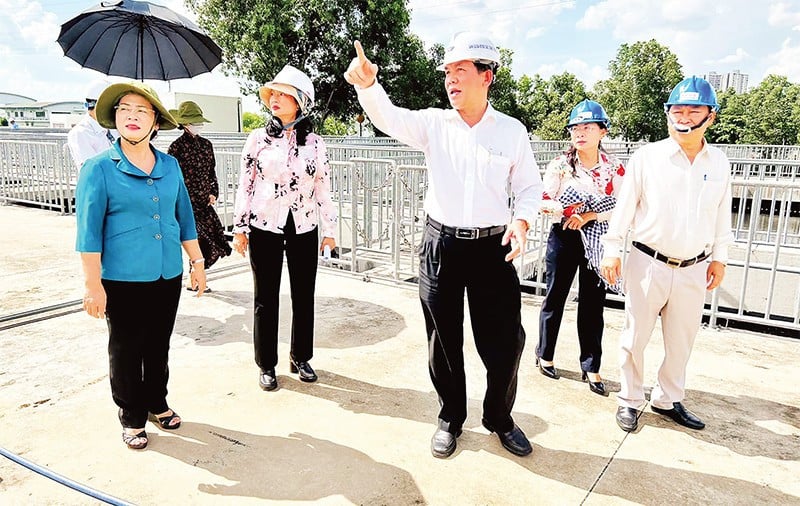 |
| Leaders of the Vietnam Fatherland Front of Ho Chi Minh City (before the operation of the 2-level local government apparatus) carry out supervision activities on infrastructure projects in the area. |
This is not only a matter of organizing state power, but also a concrete manifestation of democratic, transparent and effective operation in national governance.
In practice, in many places, there still exists a situation where Party committees "do things on behalf of" the government, and the government "abandons" all responsibility to the Party, while supervision work, especially supervision by the Front, mass organizations and the people, remains formal, lacking depth and effectiveness.
The result is a dysfunctional apparatus, a lack of cross-control mechanisms, and blurred public service responsibilities. Faced with these challenges, the issue is not only to correct organizational techniques, but also to have a modern political mindset to re-establish the order of roles: the Party leads with the right roles, the State manages with the right functions, and the people supervise to the utmost responsibility - as a fundamental guarantee for effective and sustainable governance.
Right leadership
The comprehensive leadership of the Party is the fundamental principle that governs the entire political system of our country. However, leadership does not mean making excuses, doing things for others or interfering in administration. It is leadership through platforms, guidelines, and policies; through inspection and supervision; through political prestige and the quality of the staff.
In the modern political system, the Party's establishment of a proper strategic role, without encroaching on the state's management functions or the supervision of the Front and the people, is a manifestation of the perfection of its leadership methods.
Article 41 of the Charter of the Communist Party of Vietnam clearly states that the Party leads the State and socio-political organizations through the political platform, strategies, policies, and guidelines; through ideological work, organization, personnel, and inspection and supervision of implementation. The Platform for national construction in the transitional period to socialism (supplemented and developed in 2011) also emphasizes that the Party leads but does not replace state agencies and socio-political organizations in performing their functions and tasks.
The documents of the 13th National Party Congress consistently affirm this viewpoint and require innovation in the Party's leadership method in the direction of properly performing its strategic orientation role, not doing things for, not making excuses, not imposing, and not interfering in the work of organizations in the political system.
Practice shows that when the Party "does things for" the government - from directing detailed professional stages, approving socio-economic plans, to managing specific budgets and personnel - it will erase functional boundaries, lose the initiative and creativity of the government, leading to a situation of "the superiors tell, the subordinates wait", subordinates do not dare to do things, afraid of making mistakes.
The result is a decline in administrative effectiveness, a complicated operating apparatus, and a lack of clear feedback and accountability mechanisms. This is also the underlying cause of the current stagnation in administrative reform and decentralization.
On the contrary, in localities that have well implemented the coordination regulations between Party committees and authorities, governance efficiency has been significantly improved. From these experiences, it can be affirmed that the Party is only truly strong when it directs the right roles, focuses on strategic decisions, builds a streamlined political system, and does not overlap; at the same time, improves the capacity of the staff to ensure that each institution performs its functions properly.
When the Party withdraws from specific administrative stages, the government is also truly empowered - thereby promoting the spirit of innovation, creativity, responsibility, and efficiency in governing the country.
Proper management of functions
If the Party plays the role of political leadership and strategic orientation, the State is the subject of exercising public power, directly organizing and managing socio-economic development, ensuring the rights and obligations of citizens and the stable operation of the entire administrative system.
In the modern political system model, the state is not only an agency that "implements" resolutions, but also needs to play a proactive role in creation, have real authority and be ultimately responsible to the people for development results.
However, in some places today, there is still an administrative mindset that depends on the Party Committee, even falling into a state of "reverse delegation", when the government waits for specific instructions from the Party Committee before daring to act. Some places "absolutely delegate" the decision-making on policies, personnel, and resource allocation to the Party Committee, leading to the government losing initiative and lacking personal responsibility.
This situation risks eroding administrative effectiveness, blurring the line between political power and public power - contrary to the spirit of decentralization and clear assignment of tasks set forth by Resolution 6 of the 12th Central Committee.
To overcome that situation, first of all, the state - in its role as the national administrative apparatus - must be fully empowered with clear responsibilities. Decentralization from the central to local levels cannot stop at documents, but must be linked to implementation capacity and inspection and supervision mechanisms.
Local authorities need to be proactive in developing development plans, allocating budgets, recruiting and using personnel, and at the same time being responsible to the people and competent authorities. When the government is given “real power” and is encouraged to innovate governance, operational efficiency will increase significantly.
And only when the administrative apparatus has sufficient power, capacity, and transparency in operation can it fully promote the role of a rule-of-law state, a creative and serving government - the essential foundation of sustainable development.
Supervision with utmost responsibility: From the people to the Party organization
In a democratic-rule-of-law political system, power supervision is not only a warning mechanism, but also a substantive control institution to prevent power degeneration, ensuring publicity, transparency and responsibility of public service actors.
The effective operation of the apparatus cannot be separated from a multi-dimensional monitoring mechanism - from inside and outside, from the organization to the people.
To build an effective and efficient political system, it is necessary to synchronously implement solutions regarding institutions, staff, technology and communication, and feedback and supervision mechanisms. These are the fundamental levers to help assign roles correctly, delegate sufficient authority, and exercise tight control over the operation of state power, build trust among the people, and ensure the Party's proper leadership.
Accordingly, it is necessary to urgently complete coordination regulations between the Party, government, Fatherland Front and socio-political organizations at all levels, to ensure clear division of functions, tasks and authority of each institution in the political system.
This is not only a technical management issue, but also helps to establish a strict, effective and democratic division-coordination-control mechanism. Establishing and operating this coordination regulation will contribute to overcoming the situation of overlap, avoidance of responsibility, "playing football while blowing the whistle" or administrativeizing party work; at the same time, it is the foundation for building a streamlined political system, operating in the right role, operating synchronously, and connecting with practical life.
This is also an urgent requirement in the context that our Party is resolutely promoting the building and rectification of a comprehensive, clean and strong Party and political system. Along with that, it will be impossible to ensure the correct division of roles in the political system if the cadres - especially the leaders - do not have enough capacity, courage and sense of responsibility to "take on their own roles".
Therefore, it is necessary to focus on improving the quality of staff, especially key staff at all levels, because they are not only the ones running the organization but also models of thinking, public ethics and exemplary behavior.
At the same time, we must gradually form a culture of "self-responsibility" among the staff - instead of the mentality of "following the correct procedure but not daring to make decisions", "waiting for superiors to direct" or avoiding responsibility when incidents occur.
Only when cadres are courageous enough, dare to think, dare to do, and dare to take responsibility, can the role-sharing mechanism in the political system operate effectively, limiting the situation of "one person doing, many people avoiding" which causes stagnation and disorder in the organization.
This is an urgent requirement to build a truly socialist rule-of-law state, where power goes hand in hand with responsibility. Along with that, enhancing digital transformation, e-government and digital media play a key role in making power management and supervision transparent.
It is necessary to continue to invest synchronously in digital platforms, including: Public data management system, online feedback and recommendation portal, and public responsibility map updated in real time.
These are effective tools for people, businesses and the press to monitor, evaluate and make recommendations on the operations of the public apparatus, thereby enhancing the responsibility and integrity of officials and civil servants.
In particular, it is necessary to build an open and truly democratic space for debate, where all subjects in society have the conditions and tools to participate in the policy-making and monitoring process equally, constructively and effectively.
To do that, we must first clearly institutionalize the role of the Fatherland Front, socio-political organizations, professional associations, intellectuals-scientists and the press in criticizing policies and supervising public activities.
At the same time, it is necessary to expand forms of policy dialogue, online forums for criticism, and apply digital technology to create a mechanism for responding to social opinions in real time.
This not only improves the quality of policies, but also fosters a culture of democracy in society. In particular, it is necessary to establish the people's right to supervision not only in name, but also through specific tools and a full legal corridor - from accessing open data, expressing opinions on government portals, to reflecting through the press, the Fatherland Front and intermediary institutions.
When power is placed under the scrutiny of society, and when people have the capacity to exercise their supervisory power in reality, then democratic power can truly transform into an effective, healthy and sustainable source of power control.
This is a prerequisite to prevent abuse of power, creating the foundation for an open, transparent and people-oriented governance... In building a modern, effective and efficient political system, a truth is increasingly affirmed: There can be no good governance without proper role assignment, clear responsibilities and strict control mechanisms.
The role of the Party is to provide strategic leadership, policy direction, and inspection and supervision, not to interfere in administration or to erase the state's management function. The state must manage by law, organize the implementation of public services, and be responsible to the people.
A strong government is not an omnipotent government, but a government that is properly decentralized, capable of implementation and ready to account.
The people, as the subject of power, need to be given the tools and real space to monitor all power, thereby ensuring democracy and transparency in governance.
Only when each subject in the political system acts with the right role, responsibility and towards the common interest, will the foundation of power be firmly consolidated, the people will be in agreement, and the country will develop sustainably in the era of modernization and comprehensive integration.
Source: https://huengaynay.vn/chinh-tri-xa-hoi/lanh-dao-dung-vai-quan-ly-dung-chuc-nang-giam-sat-den-tan-cung-trach-nhiem-156142.html








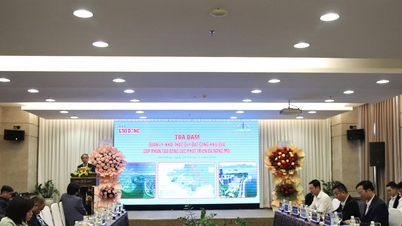




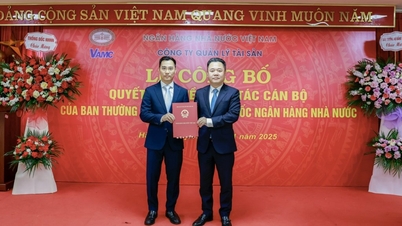

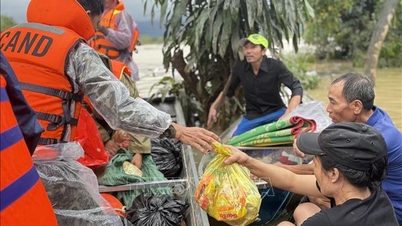
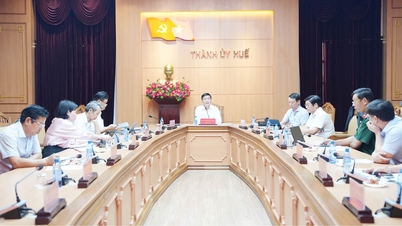
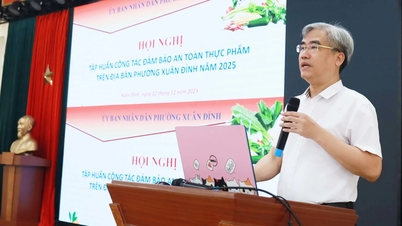



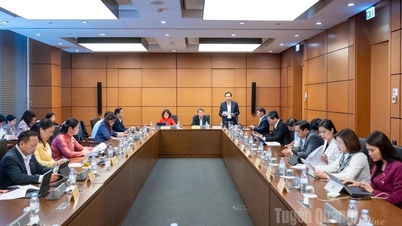

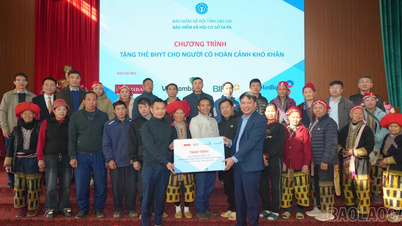


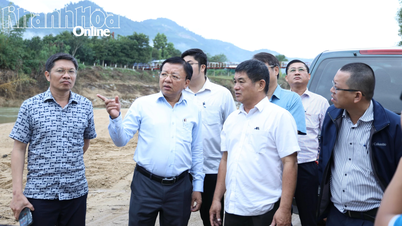





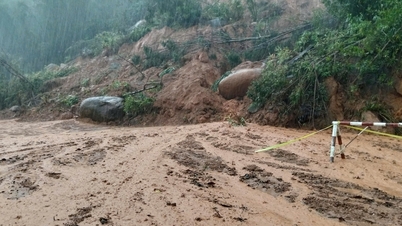
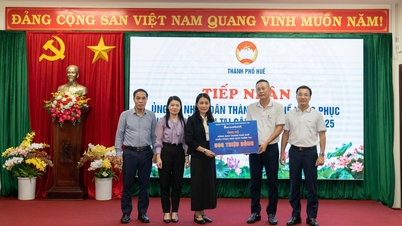
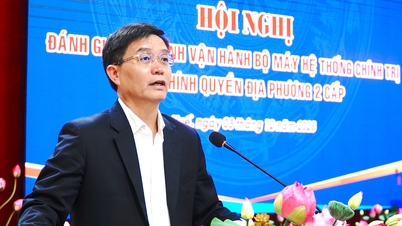
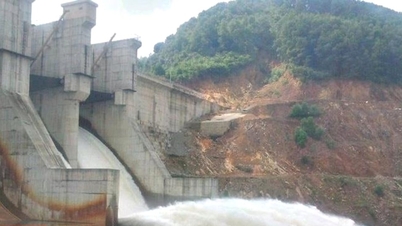
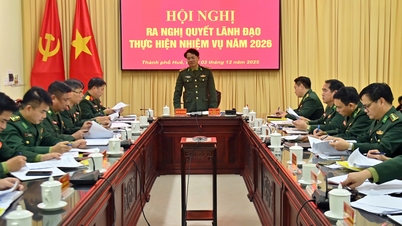
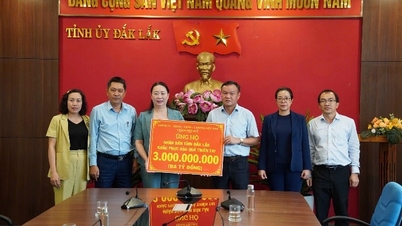
![[Photo] Parade to celebrate the 50th anniversary of Laos' National Day](/_next/image?url=https%3A%2F%2Fvphoto.vietnam.vn%2Fthumb%2F1200x675%2Fvietnam%2Fresource%2FIMAGE%2F2025%2F12%2F02%2F1764691918289_ndo_br_0-jpg.webp&w=3840&q=75)
![[Photo] Worshiping the Tuyet Son statue - a nearly 400-year-old treasure at Keo Pagoda](/_next/image?url=https%3A%2F%2Fvphoto.vietnam.vn%2Fthumb%2F1200x675%2Fvietnam%2Fresource%2FIMAGE%2F2025%2F12%2F02%2F1764679323086_ndo_br_tempimageomw0hi-4884-jpg.webp&w=3840&q=75)




























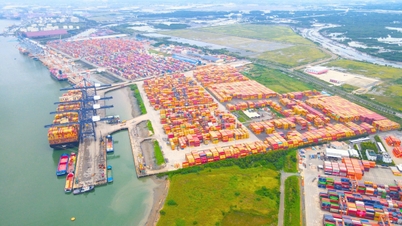






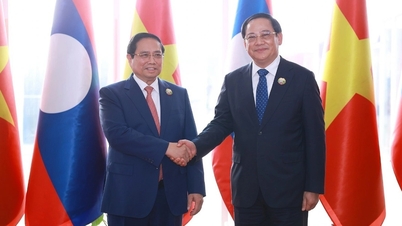















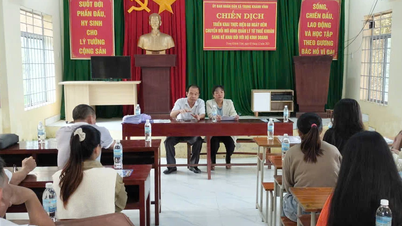
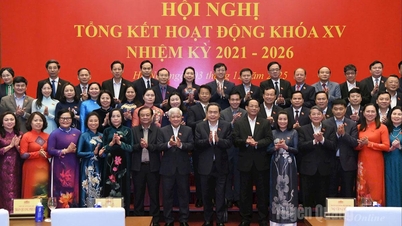
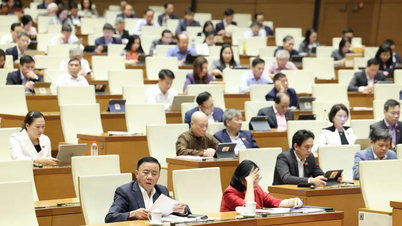












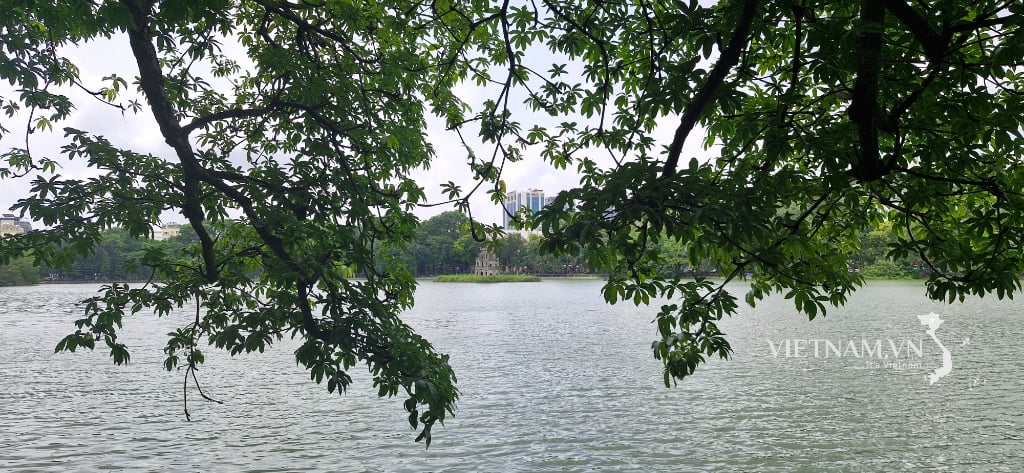
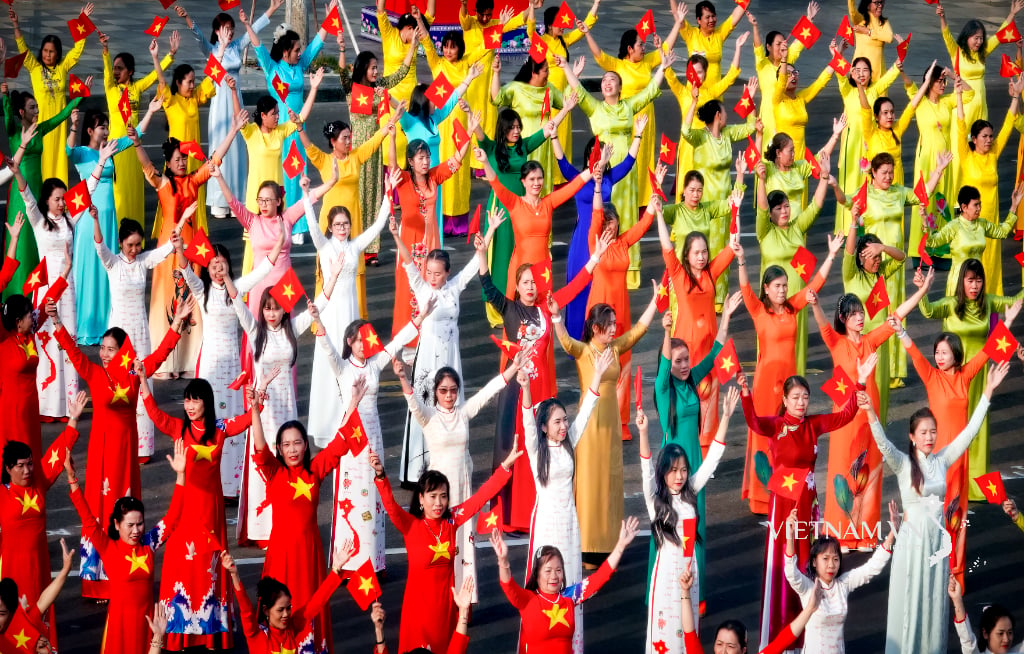
Comment (0)